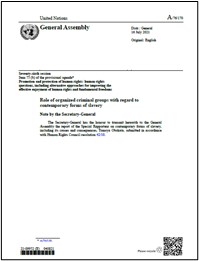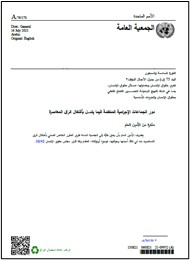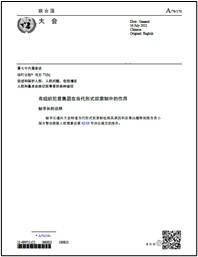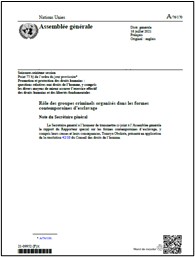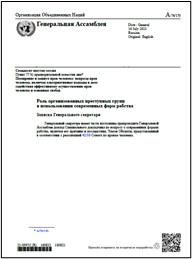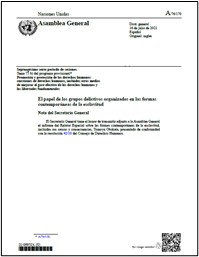The present report is submitted in accordance with Human Rights Council resolution 42/10. By providing examples from all geographical regions, it assesses the role of organized criminal groups in contemporary forms of slavery. To that end, the profiles of organized criminal groups, their modi operandi and the nature and extent of the exploitation of victims are analysed, and different ways of addressing contemporary forms of slavery as practised by organized criminal groups are subsequently discussed. In the present report, the Special Rapporteur on contemporary forms of slavery, including its causes and consequences, concludes that organized criminal groups often penetrate the legal economy and that, as a result, their criminal operations, including incidences of contemporary forms of slavery, are difficult to identify. Consequently, significant gaps in the identification and protection of victims remain, which require stronger efforts by States and businesses. The Special Rapporteur formulates recommendations on how the present loopholes in the prevention of and response to contemporary forms of slavery as practised by organized criminal organizations could be addressed.

